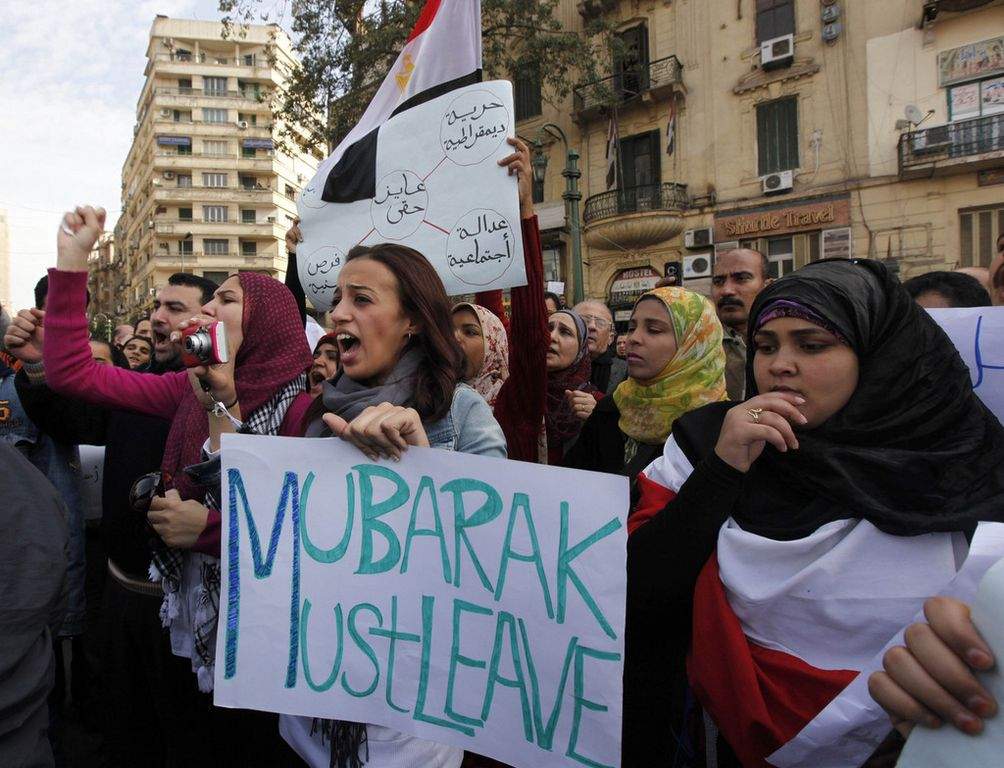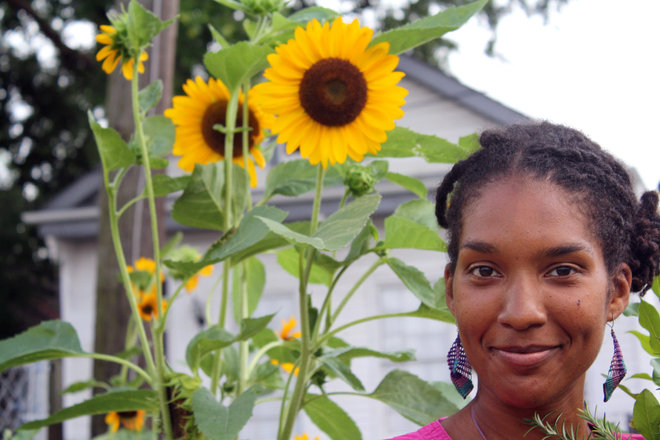
Today, Saturday, February 5, 2011, the eyes of the world are on Egypt. According to Al Jazeera’s most recent report, the protesters in Tahrir Square are standing their ground, consolidating their gains, and organizing further. Ten thousand pro-democracy protesters showed up outside the main train station in Alexandria, Egypt’s second largest city, as well.
Tahrir means liberation. The people in Tahrir Square have said they will stay until liberation. The people in Tahrir Square are teaching the world a new lesson, the lesson of liberation now and liberation to come. Ask the women of Tahrir Square, ask the youth, ask the workers, ask … everyone.
Another word emerged this week with stunning ease and fluidity: thugs. And a phrase: Mubarak’s thugs.
Yesterday, for example, in a one-hour international news of the week roundup, the National Journal’s Defense Correspondent Yochi Dreazen referred to “pro-Mubarak thugs”, and no one batted an eye, not the NPR host nor the reporters from MBC, the Middle East Broadcasting Center, and from the Washington Post, respectively.
Al Jazeera today reports: “On Friday, Al Jazeera’s offices in Cairo were attacked by “gangs of thugs”, according to a statement from the network. The office was burned, along with the equipment inside it.”
From Tahrir Square itself, Egyptian activists Mona El Seif and Selma Al-Tarzi offer a more detailed picture of thugs. According to El Seif, “We have caught a lot of the thugs….We have searched them. Most of them were one of two things. Either they had police IDs on them …or they were unemployed people that were promised either jobs or money….We know this. We know this since every demo we went to. They always plant thugs and pretend—let them pretend to be civilians, so they can start the violence. I just never saw this amount of violence, this publicly displayed, and nobody stopping it.”
Al-Tarzi added, “The Mubarak thugs were shooting at us with the machine guns. The army shot back at them. Two of them were killed. One of us was killed….More are coming. And we are so tired. People are so tired. We’ve been fighting for the past 12 hours. And we’re just protesters; we’re civilians. We’re protesters.…All we have is stones and sticks. And we’re tired. This is not what we’re here to do. This is not—this is not how—this is a crime of war. They’re killing us.”
Mozn Hassan, Director of Nazra for Feminist Studies, tells a similar story: “If the military is ever to be a legitimate national force, it must side with the protesters against Mubarak’s thugs and the police.… It is crucial at this moment in the Egyptian Uprising to understand that this is the Egyptian Army’s moment of truth. As the thousands of unarmed demonstrators are tortured, trampled, firebombed and molested by Mubarak’s thugs, will the military move to protect, or to crush the non-violent democratic movements that have occupied Tahrir Square in Cairo for the last ten days.”
Who are the thugs? They are the police, the are the security forces, they are the baltaguia, “plainclothes thugs from the state security services and gang members on their payroll.” And they are everywhere: Cairo, Alexandria, Luxor. And they are everywhere all the time: protests, labor strikes, elections. They are the body politic of `security’. When it is reported, or rumored, that 90 percent of the `thugs’ caught in Tahrir Square had identity cards linking them to the police, state and Central Security forces, the only surprise was that they were actually carrying the cards. They are the State.
A State that relies on thugs for security, for stability, for well being, for its identity as a nation-State is a thug state. It is a rogue, whose gender “remains generally, as it was originally, masculine”, who knows only the reason of the strongest and the practice of fear: “those who inspire fear frighten themselves, they conjure the very specter they represent. The conjuration is in mourning for itself and turns its own force against itself.”
Tahrir means liberation. The protesters in Tahrir Square, such as Mona El Seif and Selma Al-Tarzi, they are living a form of liberation now, today. Liberation haunts the thugs and the thug states.
(Photo Credit: https://revolutionaryfrontlines.wordpress.com)

